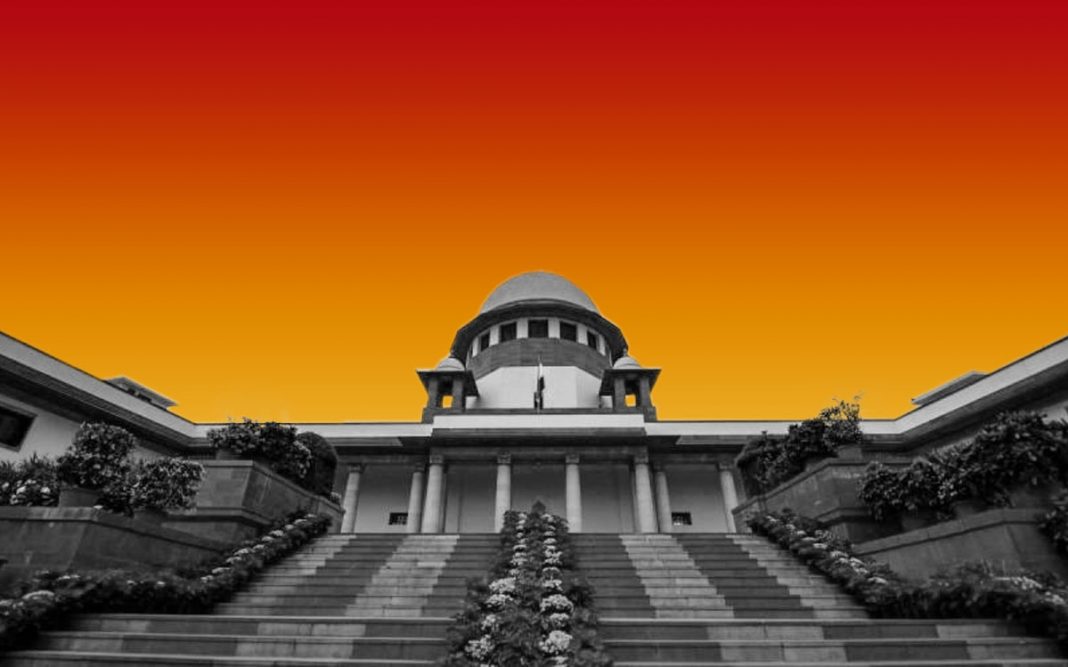The Supreme Court has recently dismissed an appeal filed by New Okhla Industrial Development Authority (NOIDA) in which a common question arose as to whether the authority is entitled to be treated as a financial creditor within the meaning of the Insolvency and Bankruptcy Code (IBC) held that NOIDA is not a financial creditor but an operational creditor under the IBC.
The Bench comprising Justice KM Joseph and Justice Hrishikesh Roy heard the two connected appeals of NOIDA against the judgment of the National Company Law Appellate Tribunal (NCLAT).
In first appeal ‘NOIDA’ initially submitted Form ’B’ and claimed as an operational creditor in regard to the dues outstanding under the lease. Subsequently the appellant filed a claim in Form ‘C’ and claimed as a financial creditor. There was some correspondence which reveals that the appellant insisted upon being treated as a financial creditor. Finally, the matter was considered by the adjudicating authority (NCLT) which held that there was no financial lease in terms of the Indian Accounting Standards and there was no financial debt. By the impugned order, NCLAT has affirmed the view taken by the NCLT.
In the second Appeal filed against an interim order passed by the NCLAT staying the order passed by the NCLT. By the order passed by the NCLT, the appellant (NOIDA) was directed to be admitted as a financial creditor and adjudicating authority also directed to admit the whole of the claim of the appellant.
The Court noted that as far as the case of the respondents that the appellant is a Local Authority goes, the case of the respondent was largely premised on the Judgment of the Top Court in Union of India and Others v. R.C. Jain and Others. In short, the case of the respondent was that the appellant is a Local Authority and the rental and premium in question, claimed by the appellant, constitutes amount due to the appellant under a law, viz., the UPIAD, read with Section 40 of the UP Act of 1973, made applicable to the UPIAD.
In New Okhla Industrial Development Authority v. Chief Commissioner of Income Tax and others, wherein the Apex Court has taken the view in the case of the appellant itself, that it is not a Local Authority. The parties would point out that the said Judgment may not apply, as it was rendered in the context of the Income Tax Act.
It is also pointed out that Judgments, which have been rendered after R.C. Jain (supra), which includes Housing Board of Haryana v. Haryana Housing Board Employees’ Union and Others and Commissioner of Income Tax, Lucknow v. U.P. Forest Corporation, are also distinguishable. It is contended that of the five tests propounded in R.C. Jain (supra), there is substantial fulfilment of the same qua the appellant.
Further it was pointed out that under Section 3(r) of the UP Act of 2010, a cognate law, the appellant is treated as a Local Authority. It is also pointed out that the appellant does provide civic amenities to the local inhabitants and, for the purpose of the IBC, it is, indeed, a Local Authority. It is also pointed out that the appellant is treated as a Local Authority under the Goods and Services Act.
“Prima facie the decision in Noida (supra) may not detract from the appellant being found to be a local authority for the purpose at hand. No doubt, we do notice that in the context of the provision to Article 131 of the Constitution of India, this Court did notice the distinction between the words ‘arising out of’ and the words ‘arising under’ and held that the words ‘arising under’ bears a narrower meaning “.
The appellant further pointed out that it is not necessary to probe the matter further, in view of the concurrent findings that the appellant is an operational creditor.
Additional Solicitor General does point out that the words ‘arising under any law’, may not be the same as amounts being made recoverable under a law. Of course, she would point out that as far as the rental part of the claim, it may be relatable to the first limb of an operational debt, held by the Court.
When questioned further, as to what her position is, if the Supreme Court found that the appellant is not a financial creditor, the appellant may be entitled, at least, to be treated as an operational creditor. The Court thinks that, having regard to the fact that both the NCLT and NCLAT have proceeded on the basis that the appellant is an operational creditor, the court need not stretch the exploration further and pronounce on the questions, which may otherwise arise.
“We must not be oblivious to the following prospect, should we find that the appellant is not an operational creditor, even under the IBC Regulations apart from claims by financial creditors and operational creditors, claims can be made by other creditors. However, there are, undoubtedly, certain advantages, which an operational creditor enjoys over the other creditors. We would proceed on the basis that, while the appellant is not a financial creditor, it would constitute an operational creditor”, the order reads.


